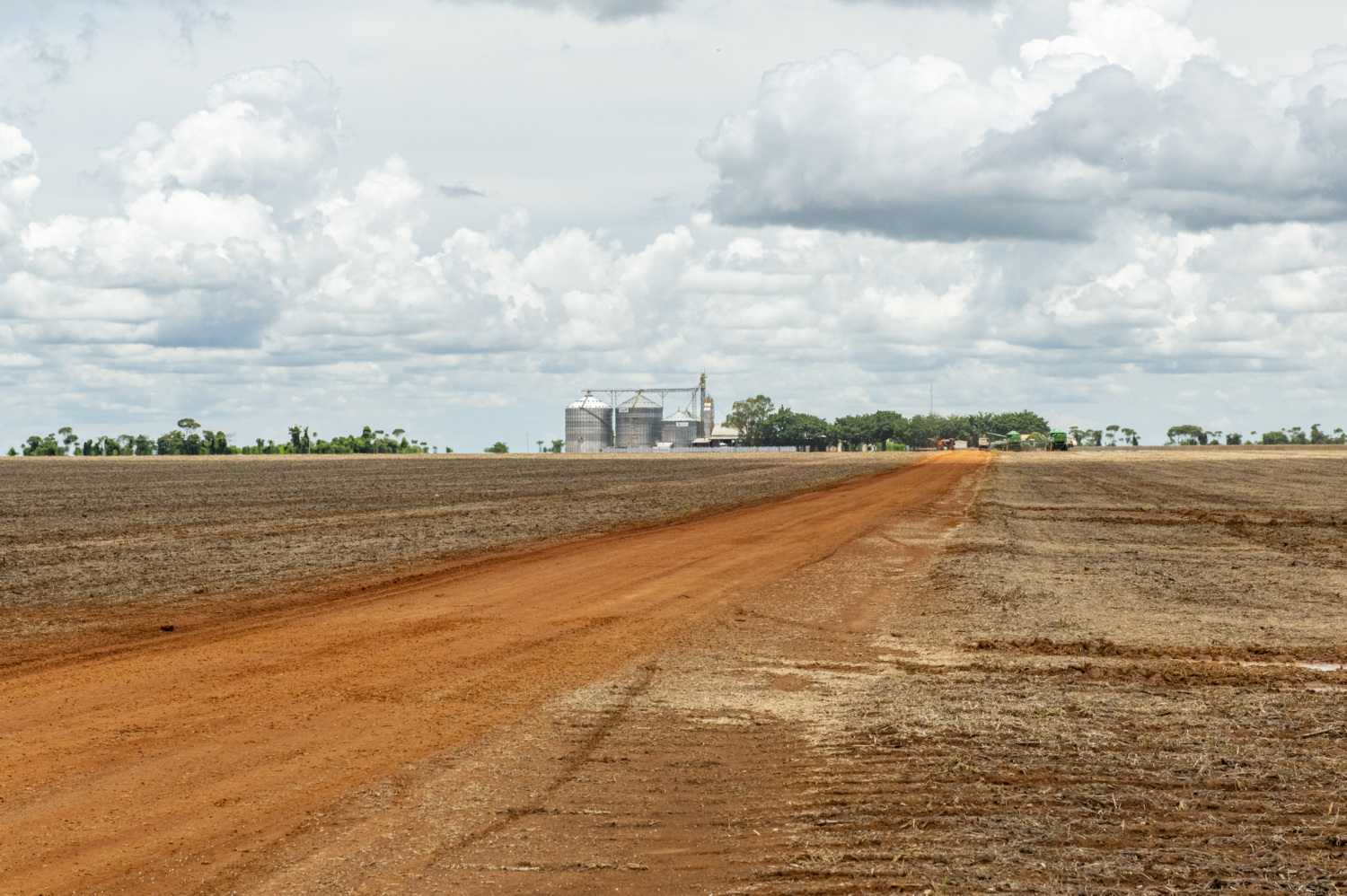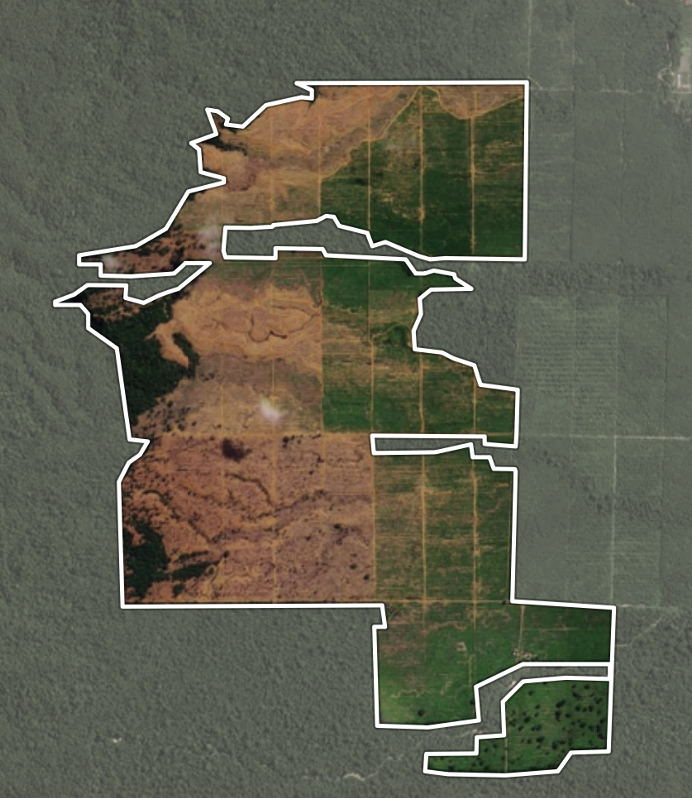
CEO Note: Mighty Earth’s 2025 Goals
By Glenn Hurowitz, Founder & CEO
Mighty Earth’s theory of change has never depended upon friendly politicians for our success. Our “Perfect Storm” model has prepared us to take on – and transform – the largest private sector actors driving environmental destruction, regardless of who wields political power. When we succeed, we can even work with big companies and other influential constituencies to drive policy wins from the most unlikely politicians.
Indeed, some of our greatest successes came under the previous Trump administration and when Bolsonaro was in office in Brazil. As we look to build on a hugely successful 2024, we will continue to be the entrepreneurial, impact-obsessed, results-focused organization that seeks out opportunities to make positive change wherever we can.
Private sector and state-level action have become even more important as pathways for positive policy change narrow in the near term. Our mission for 2025 and beyond is to so bake Nature protection and decarbonization into the economy that it can flourish regardless of who is in office.
The time is ripe to scale this effort. Voters may be backing anti-environment politicians, but almost across the board it is not primarily because of their hostility on these issues. On the contrary, public opinion polling across countries consistently shows passionate support for the environment and demands for more action on behalf of Nature and climate. People across the political spectrum can become as enraged about a beloved forest or wetland being bulldozed, or a species in peril, as they are about immigration or abortion. We need to harness that passion and point it at the right targets.
Too many CEOs content themselves with fuzzy green blather instead of setting themselves to tackle the great challenges of our time. That’s one reason the mistrust that afflicts the political sector has also taken hold towards corporations. As Bloomberg’s recent “Republic of Distrust” series chronicles, government and politics aren’t the only areas where people are disenchanted: just 16% of Americans have “a great deal” or “quite a lot” of confidence in major companies.
This distrust and anger plants the seeds of action. In our work, we have found that when people learn that the companies they patronize or invest in are engaged in heinous environmental destruction, they exert irresistible financial and reputational pressure.
So why do companies think they can get away with roasting the world? Too few people learn about the role specific companies play in destroying the environment – and so lack constructive vehicles to drive change. And when you see Los Angeles go up in flames, that just leads to anger and frustration.

This image of the fires in Los Angeles was described as “a contender for image of the century”
This disconnect is why we believe there is an urgent need to scale campaigns to transform the private sector, as well as identify and seize what policy opportunities remain.
With that context in mind, here are the strategies we’re pursuing in 2025:
- Building on momentum to permanently break the link between agriculture and deforestation. In 2024, we were able to drive meat, palm oil, paper, rubber, and chocolate companies to drop almost 1,000 non-compliant suppliers linked to deforestation on the agricultural frontier, sending a powerful signal that destruction of Nature will lead to a rapid loss of market access. We’re ramping up our satellite monitoring and investigations to drive full industry-wide enforcement of these policies.
- Ensuring state-backed development is sustainable. In Southeast Asia, the largest driver of nature destruction has shifted from large international agribusinesses to unwise state development projects, such as Indonesia’s food estates (“the world’s largest deforestation project”) or destructive dams in the Mekong. We’re working to marshal attention to these issues, and engage at the highest level with policymakers to channel development onto the world’s billion plus acres of degraded lands while supporting large-scale new restoration efforts.
- Marshalling new finance for Nature. We’re supporting the Campaign for Nature’s efforts to provide the funding necessary to achieve the world’s goal of protecting 30% of the Earth by 2030. There are many workable funding sources that can together make Nature worth more alive than dead, including Brazil’s proposed Tropical Forests Forever Facility, the LEAF Initiative, the Living Landscapes Fund and others. In the past, efforts to scale nature finance has gotten bogged down in obscurantist technical debates. We see new resolve from conservation leaders in government and beyond, as well as elegant new structures that learn from the mistakes of the past; we’re working to deliver the political will so that heads of government and companies alike prioritize this as a winnable and relatively non-controversial issue.
- Growing demand for decarbonized materials. We’re pushing the automotive industry to reckon with the environmental and climate impacts of their extensive supply chains and calling for more responsible sourcing policies. These companies can dramatically increase market opportunities for green aluminum, steel, batteries and minerals, and other materials that would create a truly carbon neutral auto supply chain. And as the industry increasingly moves to electric vehicle production, we’re working with the Initiative for Responsible Mining Assurance and other stakeholders to meet the demand for critical minerals without destroying the environment.
- Allowing plant-based protein to compete with meat. We saw in 2024 how companies that set targets for reducing methane and other kinds of climate pollution in their supply chains can boost plant-based sales through simple steps like better product placement, not using meat as a “loss leader” to bring people into stores, and ensuring overall price parity. This year, we’re working to extend those commitments to more retailers and meat companies themselves.
- Working with states and the private sector to drive continent-scale rewilding. In North America, we’re working with states to reintroduce keystone species like mountain lions; in Asia and Africa, we’re mobilizing the private sector to go beyond stopping deforestation to invest in healing the damage of decades of destruction.
We look forward to working with you to make this vision a reality.
Sincerely,
Glenn Hurowitz
Founder and CEO
P.S. – I went to salute Jimmy Carter’s coffin Thursday as it proceeded to the National Cathedral, in great measure because he was such a champion for nature. Among his accomplishments, Carter protected more lands than any president since Theodore Roosevelt through the Alaska National Interest Lands Conservation Act. This one law literally doubled the size of the national park system.
I wrote more about why I’ve always seen President Carter as a hero over on LinkedIn. If you are interested in learning more, I cannot recommend strongly enough Stuart E. Eizenstat’s President Carter: The White House Years. Eizenstat was Carter’s domestic policy advisor and later US Ambassador the European Union and Undersecretary of State. He is also a rainforest champion I’ve been fortunate to work with. He makes a compelling and very readable case for Carter as America’s most effective one-term president while offering well-balanced insights into his legacy. The eulogy he delivered at the National Cathedral is a brilliant preview of the book.
—
© 2025. The text of this article is openly licensed under Creative Commons (CC BY-ND 4.0); you are free to copy and redistribute or republish the article in its entirety with attribution and credit.


